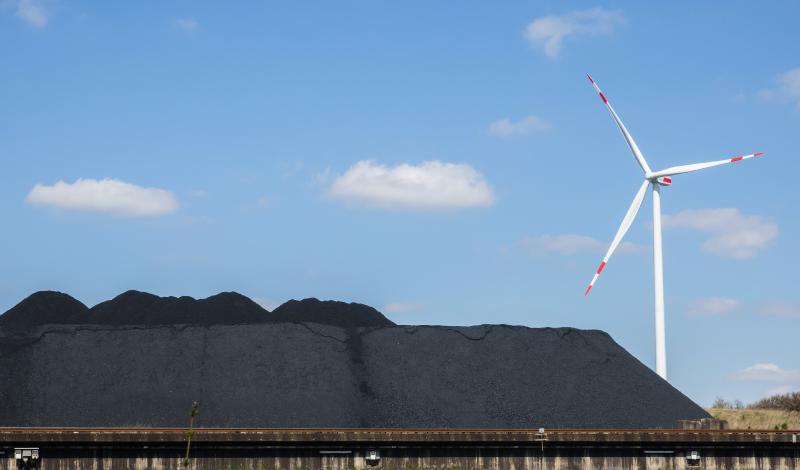Coal investments set to rise 10% this year as nations fret over energy security
By: Anmar Frangoul (CNBC)


Even business reporting has drifted into using controversy and emotional alarmism to attract attention and conform to a preferred political narrative. That may support news organizations short term profit margins but glosses over important aspects of the real news.
Buried in this quite political bit of reporting are two important facts that should not be ignored. China is a leading investor in alternative energy. China is a leading investor in fossil fuels. Apparently China understands that a transition to alternative energy depends upon a reliable supply of fossil fuels to avoid economic disruptions like we are currently experiencing. By investing in both alternative energy and fossil fuels China avoids disruptions that will slow the transition. As a result, China will emerge from the transition to alternative energy with a stronger and healthier economy.
China has a plan that doesn't require a panic response to every crisis. Obviously China's planned transition to alternative energy was not developed by politicians.

Global energy investment is on course to jump by more than 8% in 2022 and hit $2.4 trillion, with a notable uptick for coal supply chains, but far more money will be required if climate-related goals are to be met, according to the International Energy Agency.
Published Wednesday, the latest version of the IEA's World Energy Investment report said clean energy investment is set to exceed $1.4 trillion this year and account for "almost three-quarters of the growth in overall energy investment."
While the agency welcomed this, it pointed to the huge amount of work that lies ahead.
"The annual average growth rate in clean energy investment in the five years after the signature of the Paris Agreement in 2015 was just over 2%," it said.
Since 2020, that rate had grown to 12%. The IEA described that as "well short of what is required to hit international climate goals, but nonetheless an important step in the right direction."
The IEA's executive director, Fatih Birol, highlighted the challenges and opportunities the planet faces, given the current situation.
This clean energy play's business model may just be recession proof
Goldman Sachs loves these 4 global energy stocks — and one is on its conviction list
Wall Street banks name their top global stocks to play soaring energy prices and the hydrogen boom
"We cannot afford to ignore either today's global energy crisis or the climate crisis, but the good news is that we do not need to choose between them — we can tackle both at the same time," he said.
Birol added that a "massive surge in investment to accelerate clean energy transitions" is "the only lasting solution."
"This kind of investment is rising, but we need a much faster increase to ease the pressure on consumers from high fossil fuel prices, make our energy systems more secure, and get the world on track to reach our climate goals."
Unevenly distributed spending
While the investment was welcomed, a statement accompanying the IEA's report noted that the increase in clean energy spending is unevenly distributed, with advanced economies and China accounting for the majority.
On top of this, it said some markets are seeing high prices and concerns related to energy security are prompting "higher investment in fossil fuel supplies, most notably on coal."
According to the IEA's report, 2021 saw roughly $105 billion invested what it called the "coal supply chain." That represented a rise of 10% compared with 2020. It's forecasting that the industry will likely follow a similar path this year.
"Global coal supply investment is expected to grow by another 10% in 2022 as tight supply continues to attract new projects," it said. "At over USD 80 billion, China and India are anticipated to make up the bulk of global coal investment in 2022."
The U.S. Energy Information Administration lists a range of emissions from the combustion of coal. These include carbon dioxide, sulfur dioxide, particulates and nitrogen oxides.
Greenpeace, for its part, has described coal as "the dirtiest, most polluting way of producing energy."
Challenging global environment
The IEA's report comes at a time of rising inflation, a sustained surge in oil and gas prices, and geopolitical tensions related to the Russia-Ukraine war.
Those factors have created a hugely challenging environment for businesses, governments and consumers. The energy sector is no different.
"Almost half of the additional USD 200 billion in capital investment in 2022 is likely to be eaten up by higher costs, rather than bringing additional energy supply capacity or savings," the IEA said.
It added that the costs of solar panels and wind turbines — technologies crucial to the energy transition — are now "up by between 10% and 20% since 2020" after a period of decline.
People around the world are also feeling the pinch: The total energy bill for consumers in 2022 looks set to exceed $10 trillion for the first time, the IEA's report said.
A number of major economies have formulated plans to reduce their reliance on Russian hydrocarbons in recent months, which has in turn led to some challenging situations.
In Europe, for example, reduced flows of Russian gas and the specter of a full supply disruption have prompted some governments to consider a return to coal.
Germany, Italy, Austria and the Netherlands have all indicated coal-fired plants could be used to compensate for a cut in Russian gas supplies.







Simply pulling the plug may be politically satisfying and score political points but that's not a plan to transition to alternative energy. Current disruptions in both fossil fuel supplies and alternative energy supplies has only highlighted the lack of planning to make the transition. We've been playing politics instead of planning a transition.
Those who plan ahead will stay ahead of the game. The United States is behind the eight ball because of a failure to plan ahead. We're more worried about winning the next election than we are about a sustainable future without fossil fuels.
We need to continue to use our coal resources until other energy sources can fil the need at the same or lower cost.
Until overpopulation is addressed energy, climate and crowding will be big and growing problems